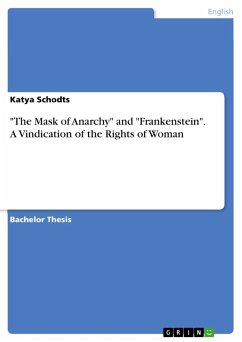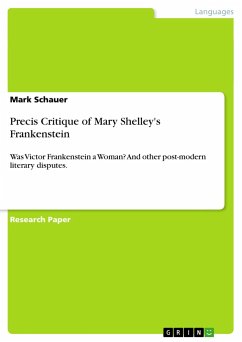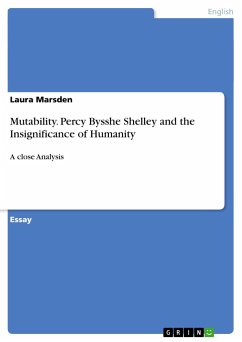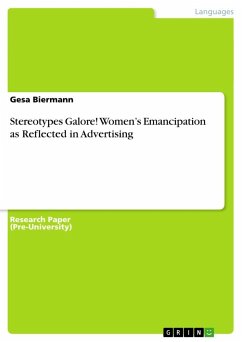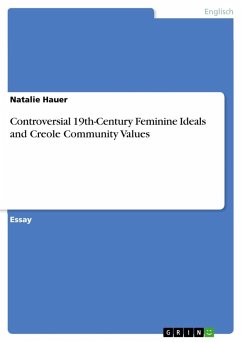Bachelor Thesis from the year 2015 in the subject English Language and Literature Studies - Literature, grade: 1,0 ("sehr gut"), Free University of Berlin (Institute of English Language and Literature), course: Romanticism and Revolution: The Shelley Circle., language: English, abstract: When I read Percy Bysshe Shelley's The Mask of Anarchy (The Mask) for the first time, I was immediately captivated by the important role that appears to be assigned to what Ashley J. Cross calls "a series of connected female figures". A female Hope is given the strength to stop the excesses of an unjust society, and it is a female voice that calls upon the men of England to "Rise like Lions after slumber". Apparently, The Mask's men are passive. Father time waits "Fumbling with his palsied hands", and the men of England have been chained while asleep. This sharply contrasts to how women and men are depicted in Frankenstein. The novel's women largely comply with contemporary gender norms: passive,docile, and dependent daughters, sisters, wives and mothers who are confined to the domestic sphere. They are not given a voice and are recurrently depicted as victims of a society dominated by ambitious, active men. In The Mask, by contrast, women not only survive tyrants, but they also emerge as highly influential forces in the establishment of an imagined future egalitarian society. Frankenstein has long been accepted as a novel that embraces women's rights. Some critics have also read The Mask in the context of 19th century society and its attitudes towards gender. In my thesis, I will argue that both works incorporate a strong call for women's rights and that in spite of a different approach, the similarities between them go far deeper than they appear on the surface. I will emphasize the influence of Mary Wollstonecraft's ideas on both writings. They seem to have been an invaluable source of information and reveal an inextricable bond between The Mask, Frankenstein and Wollstonecraft's writings.
Hinweis: Dieser Artikel kann nur an eine deutsche Lieferadresse ausgeliefert werden.
Hinweis: Dieser Artikel kann nur an eine deutsche Lieferadresse ausgeliefert werden.

